Has Turkey woken up to Islamic State threat?
- Published
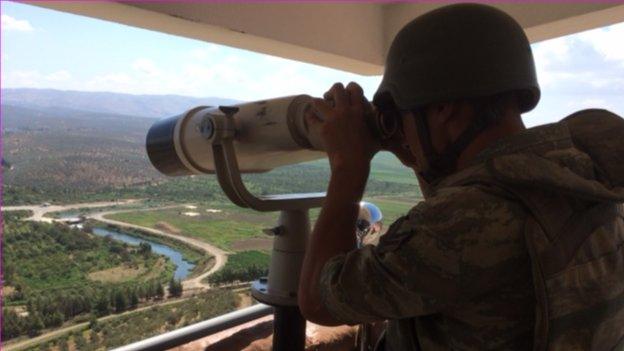
Turkey has previously been accused of ignoring supplies and fighters crossing its border with Syria
The frontline runs through cotton fields and olive groves: on one side, a powerful Nato member; on the other - a country beset by Islamist militants, the new target of Western military intervention.
Turkey insists its 900km-long (560 mile) border with Syria is a bulwark against Islamic State (IS) and other jihadist groups that have grown during the Syrian war. But its track record tells another story.
Turkey was - for much of the past three-and-a-half-year conflict - the main entry point for weapons, resources and foreign fighters entering Syria.
As a staunch opponent of the Syrian regime, Ankara was seen as adopting a policy of "anyone but [Syrian President Bashar al-] Assad". It was widely criticised for turning a blind eye to the growth of militant groups - or worse, actively encouraging them.
But in the past few months, the situation has changed: 49 Turks - diplomats and their families - were kidnapped by IS in the Iraqi city of Mosul in June and are still being held.
That, and the rapid growth of IS across Iraq and Syria, appear to have woken Turkey up to the threat. And now it is clamping down.
'Impossible to cross'
We had rare access to the Turkish army in the southern region of Hatay as they increased patrols on the border: 5,000 troops are stationed in this area alone - and they want to show they are in control.
.jpg)
Turkey uses thermal-imaging equipment to monitor the border
Guiding me around new equipment - radars and thermal-imaging cameras - battalion commander Lt Col Umit Durmaz rejects criticism that Turkey has been too slow to act.
"As soon as the war started, we put in place measures to secure the border - and they've been steadily increased in the past three years," he insists. "I find the accusations against us very unfair."
I ask whether the Turkish military can guarantee that it can protect Europe from the militant threat.
"It is impossible to cross this border without our consent: I want Europe and Turkey to trust us", he says. "Islamic State or other groups will not be able to attack our border. If they try, we will respond with all our might."
.jpg)
Syrian refugee Heyfek Neus says not all her neighbours from a village made it across the border
On the whole, it is low-level criminal activity that occupies the troops.
After taking a daily oath, repeating a vow at full volume to protect "the honour and integrity" of Turkey's borders, some climb up to the watchtowers, overlooking the vast plains of northern Syria - areas under the control of the al-Qaeda affiliated al-Nusra Front.
"We get about 10 to 15 smugglers a day of items like oil and cigarettes and we often have to exchange fire with them," says Lt Col Unsal Akyel.
"Because there's no legitimate authority on the other side, guns fall into the hands of ordinary people."
Suddenly they spot movement on the river below: people trying to cross into Turkey. They clamber into an armoured vehicle and drive down, taking every precaution.
In the end, those arriving are simply refugees: a few of the three million who have fled Syria since the fighting began. They sit in the sun, worn out, the youngest playing with a single blade of grass.
"We fled because the Assad regime bombed our villages and killed our children," says Heyfek Neus, a mother of five. "Not all of us made it across - one of our brothers died".
'Easy target'
This year alone, the military in Hatay caught almost 17,000 people trying to cross into Turkey.
.jpg)
On the whole, it is low-level criminal activity that occupies border guards
It is double the number caught last year - a tangible sign of the tightening of the border.
Many are simply refugees, placed in overflowing camps. But others are foreigners - entering and leaving Syria, suspected of joining jihad.
Among the almost 9,000 people picked up for trying to cross from Turkey into Syria are nationals of 15 countries, including Somalia, Denmark and France.
In the past, flights into Hatay airport were packed with foreign fighters, travelling easily across a once porous border. But that is changing.
"Turkey has been blamed unfairly as an attempt to cover up the failed policy towards Syria by the international community," argues Cemalettin Hasimi, an adviser to the prime minister.
"Turkey is an easy target. But we should focus instead on the 'source countries', which are doing nothing to stop their citizens from travelling to Syria to fight."
That defensive line, say critics, hides a more sinister policy.
"The Turkish government has helped militant groups to grow," argues Mehmet Ali Ediboglu, from the opposition CHP party.
"Today, areas where Islamic State or al-Nusra front are dominant are very close to the Turkish border. They weren't able to get a foothold further south in Syria. Militants come and go from here."
Close threat
Muslim Turkey is key to the US strategy against IS.
Bordering both Syria and Iraq, it houses large American bases and has the second-biggest army in Nato.
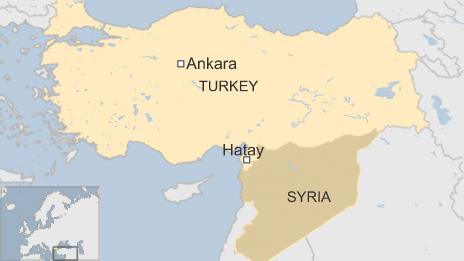
But the diplomats held hostage by IS make Turkey's next move delicate for fear of retaliation.
Ankara wants to stem the influx of Syrian refugees. And it fears that weapons may pass from Kurdish groups in Syria to Kurdish PKK fighters in Turkey - deemed a terrorist threat.
With those concerns weighing heavy, government officials say Turkey will not take part in combat operations and will not allow its bases to be used for air strikes.
But the country will play an important humanitarian role - and its support for the Western-led coalition will be crucial.
As we drove away from the border, we suddenly caught a glimpse of a truck on the Syrian side carrying heavily armed al-Nusra fighters.
We turned around and sped back - but they disappeared fast into the forest, their black flag flying from a nearby building.
It was a reminder of just how close the threat is - and how the West relies on Turkey's ability to confront it.
- Published11 September 2014
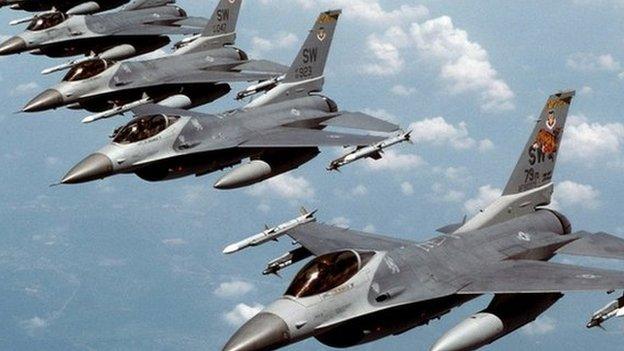
- Published11 September 2014
- Published11 September 2014
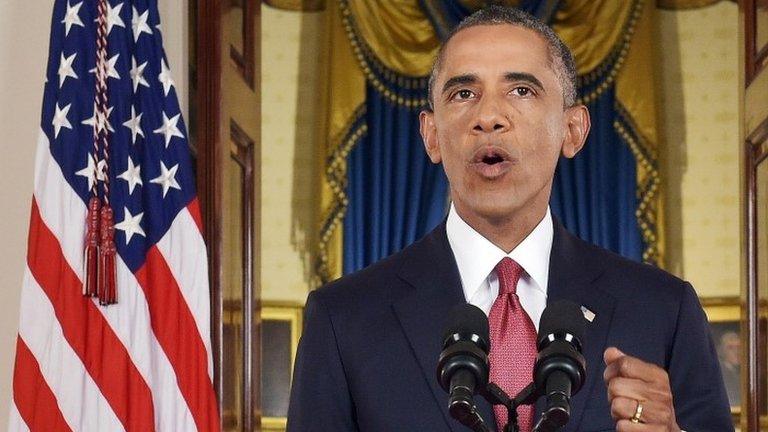
- Published2 December 2015
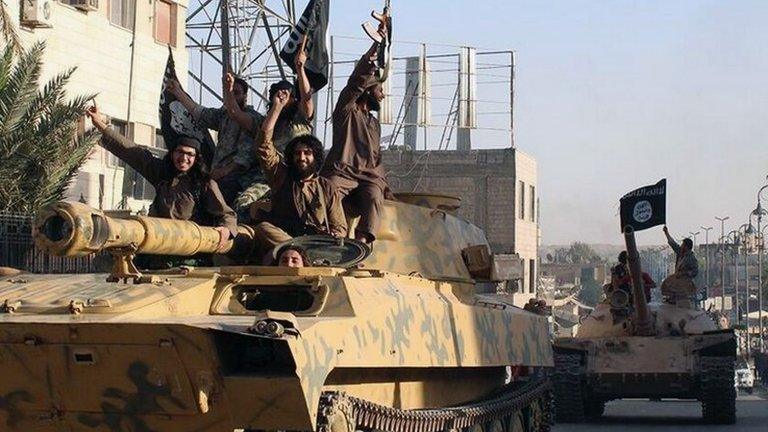
- Published22 August 2023
